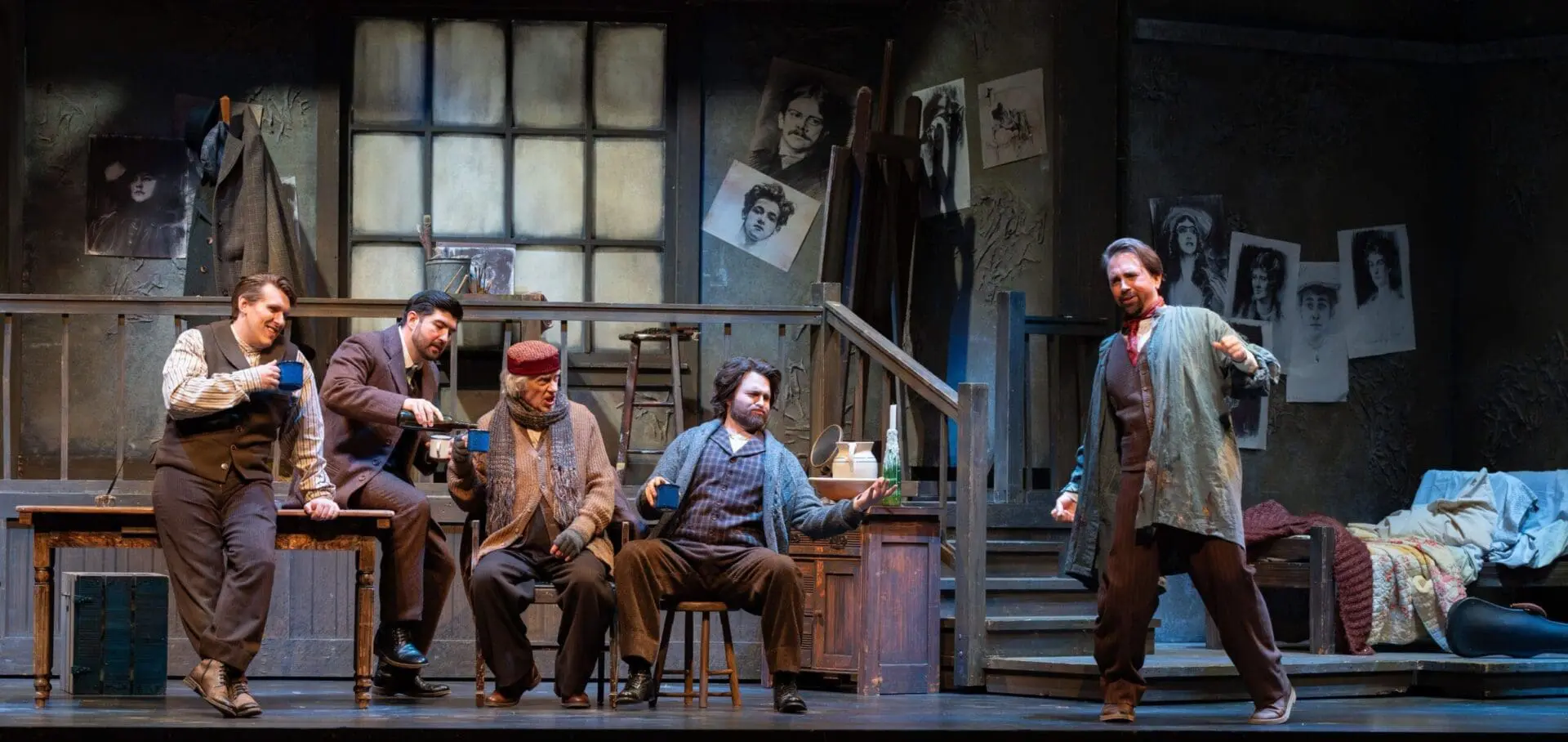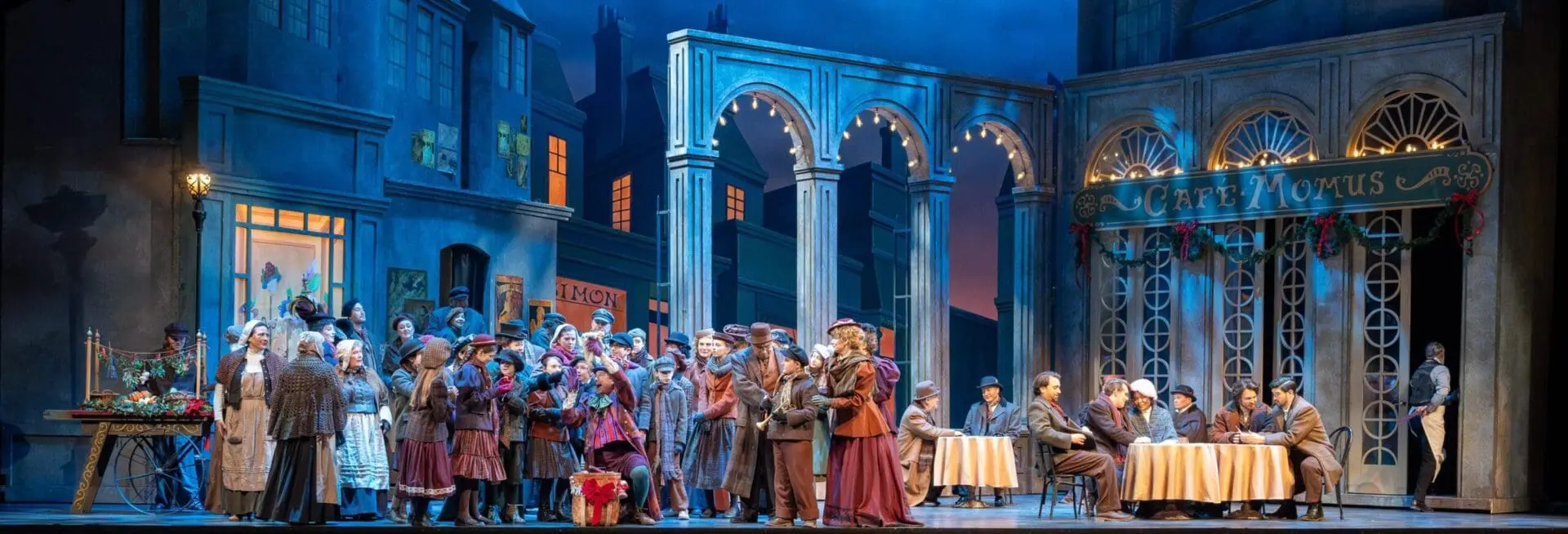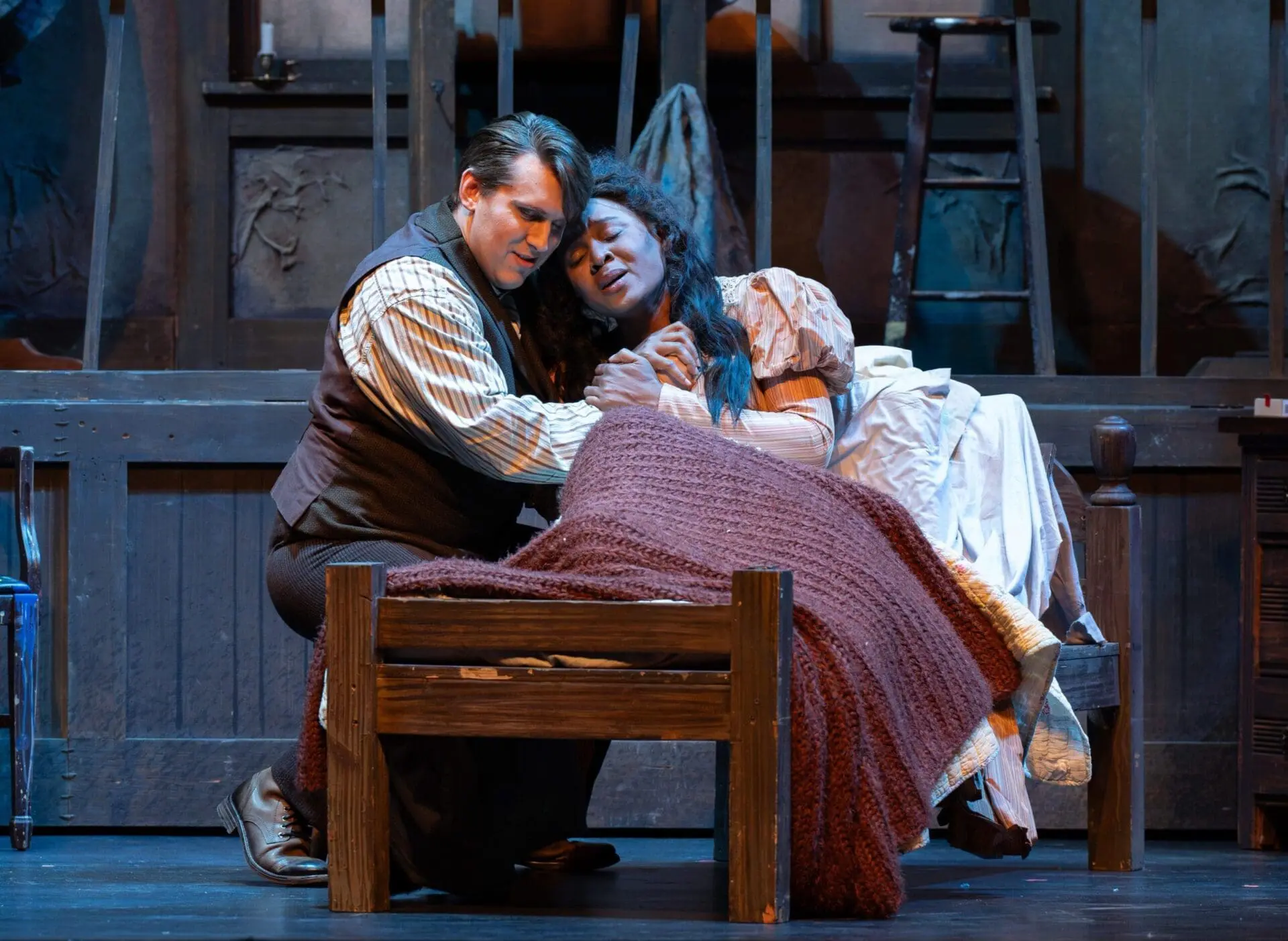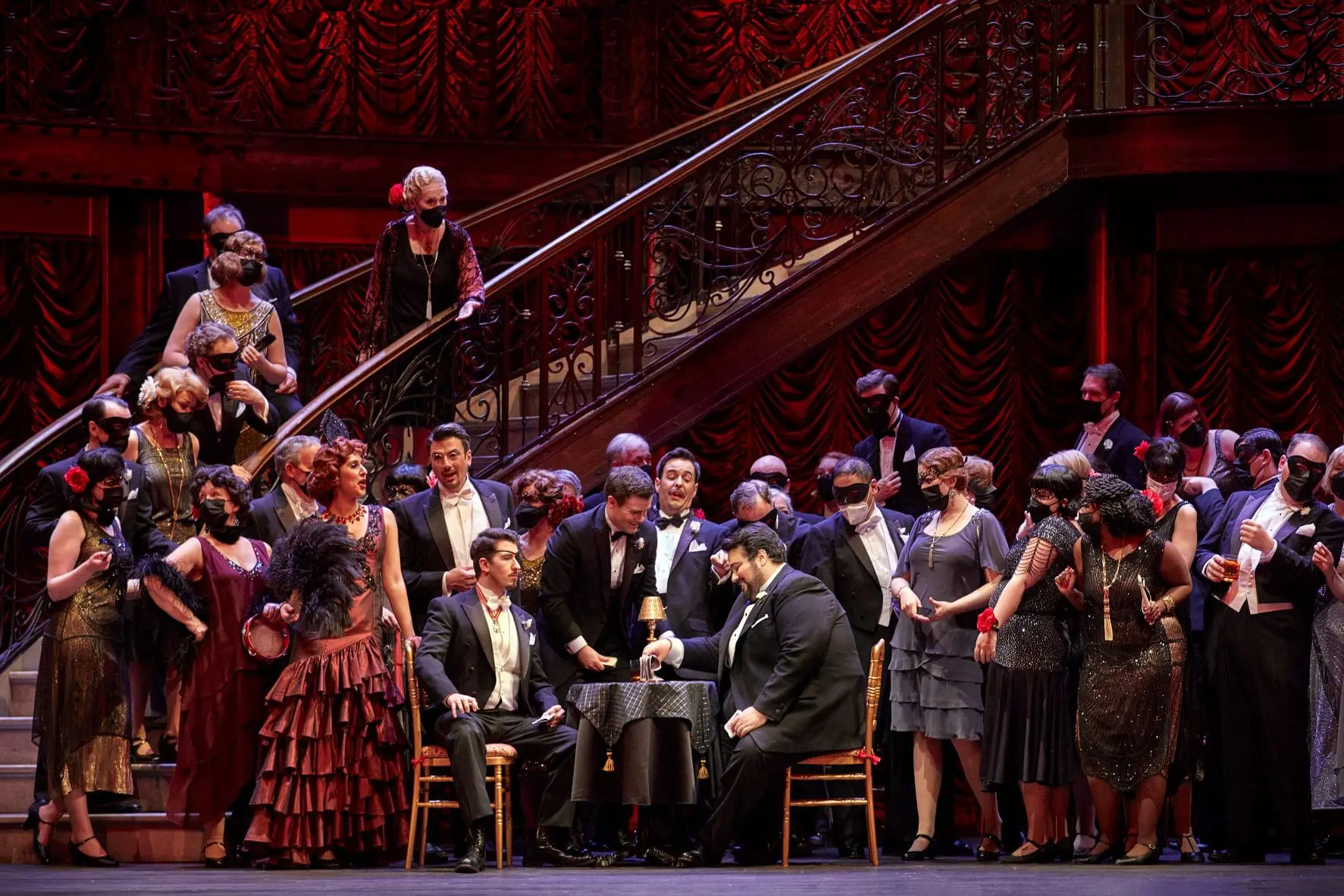It may have taken 11 long years, but Manitoba Opera’s latest production of Puccini’s La bohème proved well worth the wait. Its tear-soaked tale of the ragtag bohemians living and dying in 1830s Paris is still able to pull hard at the heartstrings while packing an emotional punch.
Last performed at Winnipeg’s Centennial Concert Hall in April 2014, the 53-year-old Manitoba Opera (MO) closed its season with the immortal, four-act verisimo opera that chronicles the story of dreamy-eyed poet Rodolfo and his seamstress lover Mimì, dying from the ravages of tuberculosis, based on Henri Murger’s 1851 novel Scènes de la vie de bohème. Stage directed by Anna Theodosakis, notably in her MO debut, the production boasted a particularly strong, all-Canadian cast of principals, (nearly) all also marking their company premieres, who brought Giuseppe Giacosa and Luigi Illica’s libretto to life.
The first of those is Canadian-Cameroonian soprano Suzanne Taffot, a spectacular Mimì with innate acting skills who transforms before our eyes from shy neighbour in search of a light for her extinguished candle to a woman deeply in love as her own life force flickers. She easily won our hearts, as she did Rodolfo’s, during her first act aria “Sì, mi chiamano Mimì,” displaying her gorgeously expressive voice, clear diction and ability to infuse her character with dignified humility as she shares her love for “gentle magic” and spring flowers with the poet. Her performance grew even more luminous as consumption took its grim toll. Her fourth act farewell duet with Rodolfo, “Sono andati?” was a shimmering highlight filled with ringing high notes as she declares “You are my love.”
New Brunswick-born tenor Zachary Rioux equally enthralled during his confident professional role debut as Rodolfo. His “Che gelida manina” showcased his resonant, fully rounded tones, even range and heroic delivery, lingering on his uppermost notes (albeit his climactic line, “la speranza,” might have been held longer) that well earned its thunderous applause.
His Latin Quarter chums: the besmocked painter Marcello (baritone Hugo Laporte), musician Schaunard (baritone Clarence Frazer) and philosopher Colline (bass-baritone Alexander Halliday) good-naturedly spar and joke with each other with “wink wink” humour as they realize their pal has fallen hard for the seamstress. Their well-matched voices created a musical canvas for the two lovers throughout the nearly three-hour (including two intermissions) show. A special bravo to Halliday for his Act Four solo, “Vecchia zimarra,” sung simply and eloquently to his beloved overcoat that he sells to buy medicine for the dying Mimì. A metaphor for bidding farewell to the bohemians’s own “age of innocence,” this moment elicited the first of many open sobs heard in the house during the opening night performance.

Photo Credit: Mark Rash
From left to right: Zachary Rioux, Clarence Frazer, David Watson, Alexander Halliday and Hugo Laporte
Soprano Charlotte Siegel’s suitably coquettish Musetta first flounced into Café Momus to win back her former lover, Marcello, with her voice effortlessly sailing through “Quando m’en vo’” despite at times sounding strangely muffled. Nevertheless, her overall compelling portrayal crafted a femme fatale ultimately redeemed by the power of selfless love, as she warms Mimì’s “ghostly grey hands” with a muff and comforts her friends following Mimì’s tragic demise.
The third act quartet, “Addio dolce svegliare alla mattina!,” in which the two lead romantic couples contrapuntally play off each other, was another treat. The fact that closer physical proximity would have allowed more sparks to fly was a blocking misstep in Theodosakis’s lively direction, which included a garret full of comic flourishes and sensitive emotional touches that further heightened the opera’s narrative arc.
Bass-baritone David Watson, a regular fixture on the MO stage, reprised his dual roles of crusty landlord Benoît and Musetta’s doddering sugar daddy Alcindoro, whom she tricks into paying the café bill, with the beloved singer’s booming voice as strong and sure as it was back in April 2014.
The MO chorus (Tadeusz Biernacki, director) and children’s chorus (Carolyn Boyes, director) light up the Parisian night sky during Act Two’s Christmas Eve street scene. Their delivery was as crisp as the gendarmerie’s rat-a-tat military drums during the “Aranci, datteri! Caldi i marroni!” scene, that included an all-too-fleeting cameo appearance by toy vendor Parpignol (George Nytepchuk).
R. Keith Brumley’s effective, multi-tiered sets and properties, provided by Lyric Opera of Kansas City, pumps plenty of ooh-la-la into this production, lit in an artist’s palette of rosy hues by Winnipeg’s Hugh Conacher, with all costumes from Edmonton Opera.
The incomparable Tyrone Paterson, notably celebrating his 20th year as MO’s music advisor and principal conductor, led the Winnipeg Symphony Orchestra with his customary finesse, with one lush, unabashedly romantic “hit” aria seeming to follow on the heels of another.
Over the nearly 130 years since its premiere at Turin’s Teatro Regio in 1896, La bohème remains one of the world’s most cherished operas, still able to speak to the longing dreams and desires in all of us. It certainly did so on opening night, with its latest coterie of courageous bohemians garnering a rousing standing ovation for their daring to live and die on their own passionate, unflinching terms.

Photo Credit: Mark Rash
The chorus (both adult and children’s) lit up the Parisian night sky in Manitoba Opera’s La bohème
Opera Canada depends on the generous contributions of its supporters to bring readers outstanding, in-depth coverage of opera in Canada and beyond. Please consider subscribing or donating today.
















